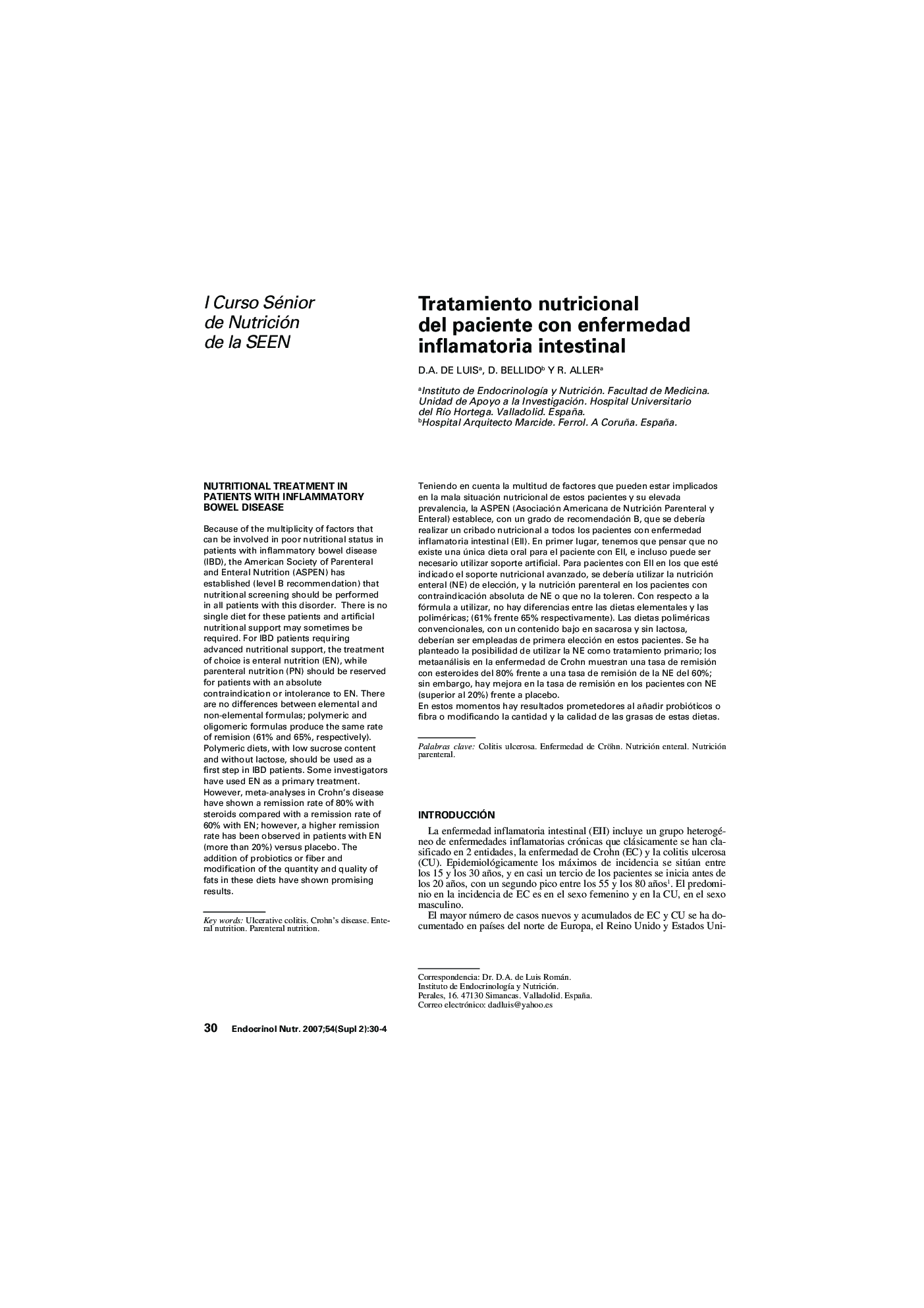| Article ID | Journal | Published Year | Pages | File Type |
|---|---|---|---|---|
| 2774572 | Endocrinología y Nutrición | 2007 | 5 Pages |
Abstract
Because of the multiplicity of factors that can be involved in poor nutritional status in patients with inflammatory bowel disease (IBD), the American Society of Parenteral and Enteral Nutrition (ASPEN) has established (level B recommendation) that nutritional screening should be performed in all patients with this disorder. There is no single diet for these patients and artificial nutritional support may sometimes be required. For IBD patients requiring advanced nutritional support, the treatment of choice is enteral nutrition (EN), while parenteral nutrition (PN) should be reserved for patients with an absolute contraindication or intolerance to EN. There are no differences between elemental and non-elemental formulas; polymeric and oligomeric formulas produce the same rate of remision (61% and 65%, respectively). Polymeric diets, with low sucrose content and without lactose, should be used as a first step in IBD patients. Some investigators have used EN as a primary treatment. However, meta-analyses in Crohn's disease have shown a remission rate of 80% with steroids compared with a remission rate of 60% with EN; however, a higher remission rate has been observed in patients with EN (more than 20%) versus placebo. The addition of probiotics or fiber and modification of the quantity and quality of fats in these diets have shown promising results.
Keywords
Related Topics
Life Sciences
Biochemistry, Genetics and Molecular Biology
Clinical Biochemistry
Authors
D.A. de Luis, D. Bellido, R. Aller,
